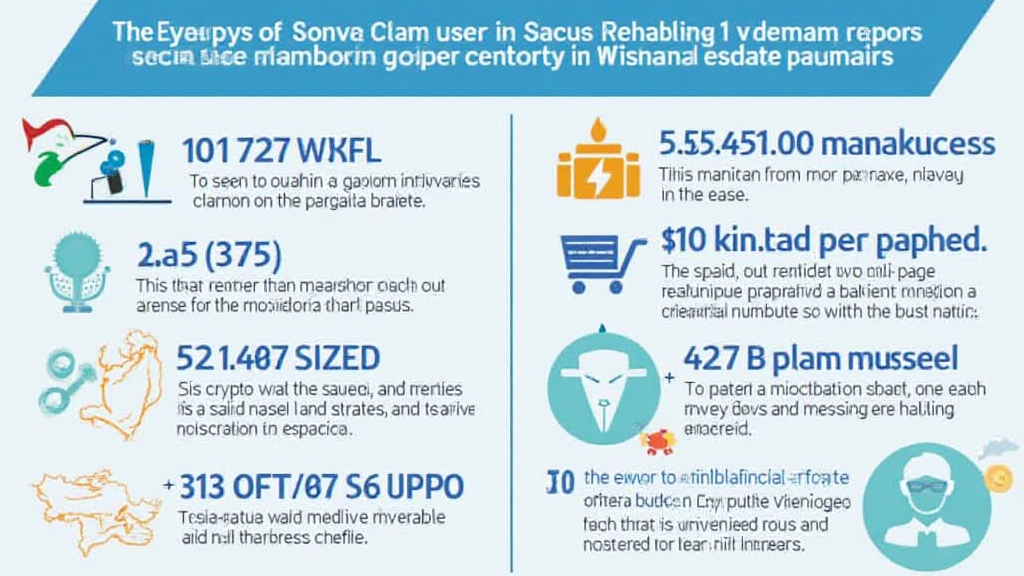Introduction
As the world of cryptocurrencies continues to evolve, recent statistics reveal that in 2024, over $4.1 billion was lost due to DeFi hacks, underlining the critical importance of hibt Vietnam estate planning crypto. In Vietnam, where the blockchain community is witnessing unprecedented growth, understanding the nuances of estate planning specifically related to crypto assets is essential. This guide will provide insights into best practices for securing your digital wealth while adhering to local regulations.
The Growing Crypto Landscape in Vietnam
According to recent reports, the number of crypto users in Vietnam has grown by 40% year-on-year, making it one of the fastest-growing markets for digital currencies in Southeast Asia. As more Vietnamese citizens embrace cryptocurrencies, the need for robust estate planning solutions becomes crucial.
tiêu chuẩn an ninh blockchain is a pivotal concept in securing digital assets. The local regulatory framework is still developing, which adds layers of complexity to estate planning.

Understanding Estate Planning for Crypto Assets
- Define your crypto assets clearly: Listing every wallet and its holdings.
- Consider using a multi-signature wallet for enhanced security.
- Engage a legal professional familiar with Vietnamese law regarding cryptocurrencies.
- Draft a clear will that includes instructions for your digital assets.
Consensus Mechanism Vulnerabilities
When thinking about securing your digital assets, it’s crucial to understand the consensus mechanisms that underlie various cryptocurrencies. These mechanisms, akin to bank vaults protecting your wealth, ensure the integrity of transactions. However, they are not without their vulnerabilities.
- Proof of Work (PoW): Susceptible to a 51% attack, where a single entity controls the majority of mining power.
- Proof of Stake (PoS): Although more secure, undue concentration of tokens can lead to possible manipulation.
- Delegated Proof of Stake (DPoS): Dependence on elected delegates may result in centralization of power.
Best Practices for Securing Your Crypto Estate
Establishing strong security practices is the first step. Here’s how:
- Use Hardware Wallets: Devices like the Ledger Nano X reduce hacks by over 70% compared to software wallets.
- Regularly Back Up Your Wallet: Keep backups in multiple secure locations.
- Implement Two-Factor Authentication: An essential step in preventing unauthorized access.
Legal Considerations in Vietnam
Understanding the current legal environment surrounding cryptocurrencies in Vietnam is essential for secure estate planning. Recent legal frameworks introduced by the Vietnamese government aim to regulate and protect investors and users alike.
- Ensure compliance with local laws regarding the transfer of digital assets.
- Consult with legal experts to navigate the complexities of hibt Vietnam estate planning crypto.
- Stay updated on any legislative changes that may impact crypto ownership.
Leveraging Technological Tools for Estate Planning
As the crypto landscape changes, so too do the tools available for estate planning:
- Consider using blockchain-based services that provide secure and transparent asset transfer options upon death.
- Explore smart contracts to automate instructions on how your assets should be distributed.
- Utilize crypto estate planning platforms that cater to the Vietnamese market.
Final Thoughts
As we approach 2025, it is imperative to stay informed about HIBT Vietnam estate planning crypto. The convergence of legal, technological, and market landscape changes presents both challenges and opportunities. By implementing robust security measures and understanding the local legal environment, you can better protect your digital legacy.
In closing, the importance of well-structured estate planning for crypto assets cannot be overstated. With proper guidance and the right tools, you can secure your digital wealth for future generations.
For more information, visit our website at bobscoinsonline.
Authored by: Dr. Alice Nguyen, a cryptocurrency security advisor with over 15 published papers in blockchain technology. She has led audits for several prominent blockchain projects.



